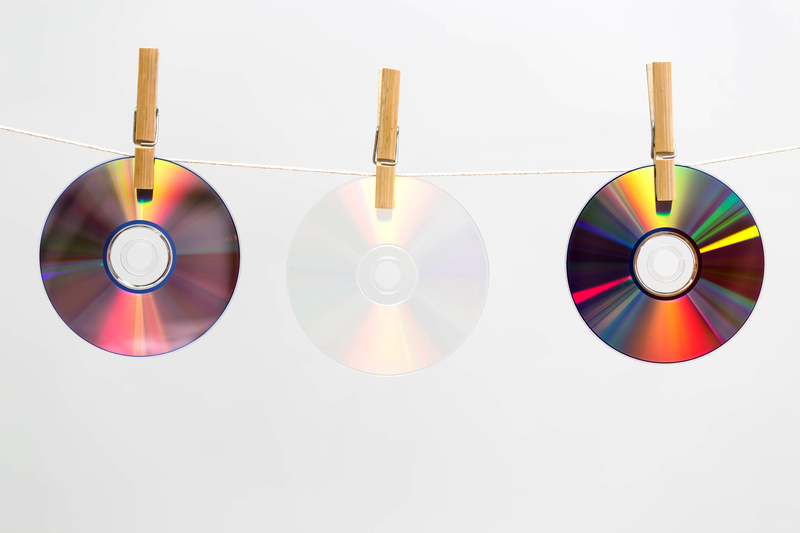How to Responsibly Recycle Your Used Chargers
Chargers are an inseparable part of our digital lives. Whether it's for your smartphone, laptop, or tablet, you've probably accumulated a drawer full of old, unused, and broken chargers over the years. But what happens when you no longer need them? Do you throw them in the trash, keep them "just in case," or do you take steps to responsibly recycle your used chargers? Properly recycling your electronic waste, especially old chargers, not only benefits the environment but may also help conserve resources and prevent pollution.
Why Should You Recycle Your Old Chargers?
Before we explore how to recycle old charging cables and adapters responsibly, it's important to understand why recycling is so essential. Here's what makes responsible disposal of used chargers crucial:
- Environmental Impact: Chargers contain metals (like copper and aluminum), plastic, and small circuit boards. When thrown in the trash, these components can leach hazardous chemicals into the ground and water.
- Resource Recovery: Many of the metals in chargers are finite resources. Recycling allows these materials to be extracted and reused, ultimately conserving raw materials and energy.
- Preventing E-Waste: Chargers are a form of electronic waste (e-waste), one of the fastest-growing waste streams globally. Proper e-waste recycling is vital for reducing landfills and supporting a circular economy.
- Legal Requirements: Some local regulations require proper electronic waste disposal and prohibit throwing items like chargers in regular trash bins.

What Happens If You Don't Recycle Chargers Properly?
Improper disposal can lead to serious environmental and health risks, including:
- Pollution: Toxic elements like lead, cadmium, and mercury in charger components can contaminate soil and groundwater if disposed of in landfills.
- Greenhouse Gas Emissions: Manufacturing new electronics from raw materials produces more harmful emissions than using recycled materials.
- Data Security Risks: While not common in chargers, some smart charging devices may store sensitive information--which, if not erased or recycled properly, could pose data privacy risks.
For all these reasons, it's crucial to recycle your used chargers safely and responsibly.
How to Responsibly Recycle Your Used Chargers: Step-By-Step Guide
Let's dive into the most effective and environmentally-friendly ways to handle used chargers and charging cables.
1. Sort and Gather Your Old Chargers
- Look through drawers, bags, and storage boxes to find unused or broken chargers.
- Separate chargers by type (USB cables, wall adapters, laptop power bricks, etc.) and condition (working, damaged, obsolete).
2. Decide if the Charger Can Be Reused or Donated
Not all old chargers need to be recycled. If a charger is still functional and in good condition:
- Donate to friends and family or community organizations, schools, or charities that may need spare electronics.
- Check with local shelters or community centers that often accept working electronics for reuse.
- Selling working chargers on secondhand marketplaces (e.g., eBay, Craigslist, Facebook Marketplace) keeps them in use and delays their end-of-life.
Tip: Only donate or resell chargers that meet safety standards and are fully functional.
3. Find Local Charger Recycling Locations
If your chargers are no longer usable, it's time to identify recycling options. There are several ways to recycle your used charging cables and adapters:
- Municipal E-Waste Collection: Many cities and towns offer special e-waste recycling events or drop-off points for small electronics. Visit your municipality's website to check schedules and accepted items.
- Electronics Retailers: Major electronics stores like Best Buy, Staples, and Office Depot often provide in-store electronic recycling bins for items like chargers and cables.
- Manufacturer Take-Back Programs: Brands such as Apple, Samsung, Dell, and HP offer mail-in or drop-off recycling programs for their chargers. Check the company's website for details.
- Certified E-Waste Recyclers: Look for e-Stewards or R2 certified facilities in your area. These recyclers follow responsible e-waste processing and ensure chargers are properly dismantled.
4. Prepare Your Chargers for Recycling
- Tie cables with twist ties or rubber bands for easy handling.
- Remove any batteries (some chargers have integrated backup power--dispose of batteries according to local regulations).
- Label chargers if required by the recycler or program.
5. Drop-Off or Mail-In Your Used Charger for Recycling
Take your prepared chargers to the selected recycling point, following instructions for sorting or packaging. For mail-in, package your items securely per the program's guidelines.
Best Practices for Recycling Chargers Responsibly
What Makes a Charger "Properly Recycled"?
A charger is responsibly recycled when:
- It's handled by a certified e-waste processor.
- Metals, plastics, and circuit boards are separated and sent to facilities that process them for reuse.
- Potentially hazardous materials are safely contained and not landfilled or incinerated.
What to Avoid When Recycling Chargers
- Don't put chargers in regular recycling or trash bins: Household recycling facilities are not equipped to handle e-waste, and putting chargers in the trash causes environmental harm.
- Don't burn or attempt to disassemble chargers at home: This can release toxins and pose fire and injury hazards.
- Don't ignore local EPR (Extended Producer Responsibility) programs: Using manufacturer take-back ensures chargers are managed according to strict environmental standards.
Understanding What Happens to Recycled Chargers
When chargers are delivered to an electronic waste recycling center, they undergo a series of steps:
- Sorting and Classification: Chargers are separated from other types of e-waste, inspected, and grouped by type.
- Manual Disassembly: Skilled workers or machines separate chargers into metal, plastic, and electronic components.
- Material Recovery: Copper wires, connectors, and plug prongs are extracted for recycling into new products. Circuit boards are processed for their trace amounts of precious metals.
- Plastic Shredding: Plastics are shredded and sent to facilities that turn them into pellets for new plastic manufacturing.
- Hazardous Waste Management: Any hazardous or non-recyclable parts are safely disposed of according to environmental regulations.
Alternatives to Recycling: Upcycling Old Chargers
Looking for creative ways to reuse old charging cords and adapters? Here are a few fun ideas before recycling:
- Cable Organizers: Repurpose cables as simple organizers for holding other wires together.
- DIY Projects: Use charger wires in electronic hobby kits, science projects, or home decor crafts.
- Art Installations: Artists may use old cables and electronics in sculptures or exhibits to highlight technology and waste issues.
While upcycling can give old chargers a second life, always ensure projects are safe (no frayed wires or exposed electronics).
How to Minimize Charger Waste in the Future
While responsible recycling of used chargers is vital, the most sustainable practice is to reduce e-waste generation. Here's how you can help:
- Buy Quality Chargers: Invest in durable, certified chargers compatible with multiple devices and standards to reduce frequent replacement.
- Support Universal Charging Standards: Prioritize devices that use standardized connectors (such as USB-C), minimizing incompatible chargers over time.
- Repair Instead of Replace: If possible, repair damaged chargers instead of discarding them--some stores offer cable repair services.
- Advocate for Sustainable Design: Encourage manufacturers and lawmakers to support right-to-repair laws and require eco-conscious charger design.

Frequently Asked Questions: Recycling Old Chargers
Can I throw old chargers in the trash?
It's strongly discouraged to throw old chargers in the trash. Chargers contain metals and components that could leak hazardous substances and harm the environment. Seek dedicated e-waste recycling methods instead.
Are there any parts of chargers that can't be recycled?
Most materials in chargers (metals, plastics) can be recycled. However, some specialty plastics, glue, or rubber may not be recyclable in all areas. Certified recyclers will dispose of these safely.
Do recycling centers accept all types and brands of chargers?
In general, yes--as long as the charger is an electronic accessory, such as cell phone chargers, USB-C cables, wall bricks, and laptop adapters. Always confirm with the facility for any restrictions.
How do I find a certified e-waste recycler for chargers?
Use resources like earth911.com or search for e-Stewards and R2 certified recyclers in your region. Municipal websites and major retailers also list partner recycling programs for cables and chargers.
Can I recycle charging cables and wall adapters together?
Yes, you can usually recycle them together. Bundle cables and adapters separately for easier sorting at the recycling center.
Conclusion: Do Your Part--Recycle Your Used Chargers Responsibly
Proper disposal and recycling of your used chargers may seem like a small step, but it's one that has substantial environmental and community benefits. The next time you clean out your drawers and find a collection of obsolete or damaged charging cables, resist the urge to toss them in the trash. Instead:
- Donate or reuse if they're still functional.
- Locate a trusted recycling outlet or manufacturer take-back program.
- Encourage friends and family to responsibly recycle old electronics and chargers as well.
- Support policies and brands committed to sustainable, universal charging solutions.
By taking these actionable steps, you ensure your chargers don't become toxic waste--and instead, contribute to a more sustainable, circular future.
Remember: Every charger responsibly recycled is a win for the planet.